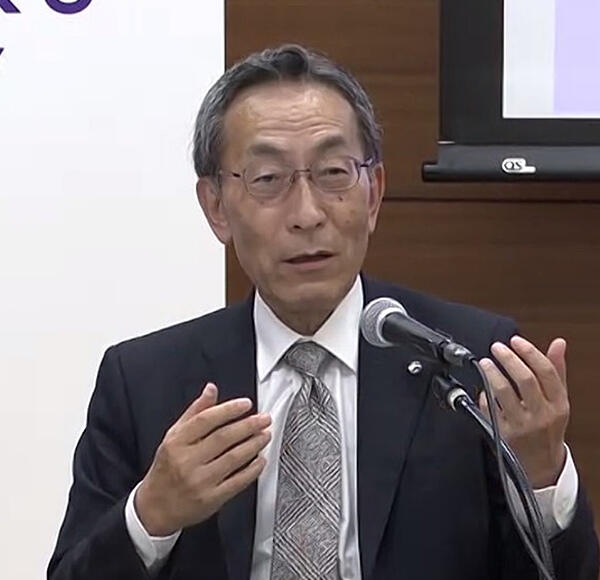Tohoku University is shortlisted for accreditation as a 'University for International Research Excellence.' It was one of 10 universities, including the University of Tokyo and Kyoto University, that had applied for funding from the 10-trillion-yen fund. Henceforth, an Advisory Board was constituted that supports further development of a timeline proposed by the University to achieve the Key Performance Indicators (KPIs) identified in the University's proposal, and the government amends the National University Corporation Act to institutionalize a collegial body in the University. After all, the accreditation of Tohoku University as a University for International Research Excellence is officially confirmed for 2024.
President Hideo Ohno of Tohoku University stated, "I am deeply honored, and truly humbled at the same time. The research-intensive university should have a comparatively flat organizational structure that attracts many talented minds, boosts their intrinsic motivation, and nurtures outstanding research. We believe that this is just what we should aim at and design a necessary structure to warrant achieving it. On the basis of this design, we propose certain interventions to enable targeted institutional changes to the extent possible. We think that such a conception of ours is appreciated in the process of selection."

Tohoku University's proposal declares its commitments to 'create societal values that transform the future,' 'pioneer the future by making a variety of seeds bloom,' and 'establish governance that spurs transformation and takes on challenges.' To fulfill these commitments, the University sets forth 19 specific strategies.
The proposal builds on the following fundamental idea: The University should serve as a source of diverse and outstanding research, and its value should consist of paving the way for cutting-edge research and linking it to societal values. The proposed interventions are defined below: The practice of sharing administrative duties and other workloads among faculty members must be abolished, allowing much more time for research, and early- and mid-career researchers among others should be able to undertake ambitious projects in an autonomous research environment.
More specifically, the laboratory system sustained by the conventional academic chair system is dismantled, and a non-hierarchical and agile research organizational structure is implemented by ensuring the autonomy of research units led by professors, associate professors, or assistant professors serving as Principal Investigators (PIs) who mentor research fellows and graduate students. This will allow for flexible grouping of research units and their members according to the characteristics of the research field. In addition to University Research Assistants (URAs) and technicians, the number of professional staff members is increased by approximately 1,100 in the following fields: managing intellectual property, encouraging industry−academia collaboration, and promoting international cooperation. The tenure-track system is rolled out throughout the University.
The number of research units is defined in the KPIs: to reorganize the current 830 research laboratories and to create 1,500 research units by the 10th year, and 1,800 by the 18th year (the completion of the reorganization of laboratories into research units). The number of staff per PI is also included in the KPIs, aiming to increase the current 89% to 130% in the 10th year and 140% in the 18th year. Ohno added, "We upgrade shared research facilities and intend to provide better research environments early on where researchers can immediately start their work from day one of the appointment."
Moreover, the proposal seeks to extend the scale of the enterprise by expanding the Co-Creation Research Center, developing a science park, and doubling private investments through the next-generation synchrotron radiation facility 'NanoTerasu,' Tohoku Medical Megabank Organization 'ToMMo,' and Technology Co-creation for Semiconductor, among other projects. Ohno stressed, "We would like to draw on the University's strengths, and strategically deliver benefits to the world based on outstanding research products of the university."
This article has been translated by JST with permission from The Science News Ltd. (https://sci-news.co.jp/). Unauthorized reproduction of the article and photographs is prohibited.




